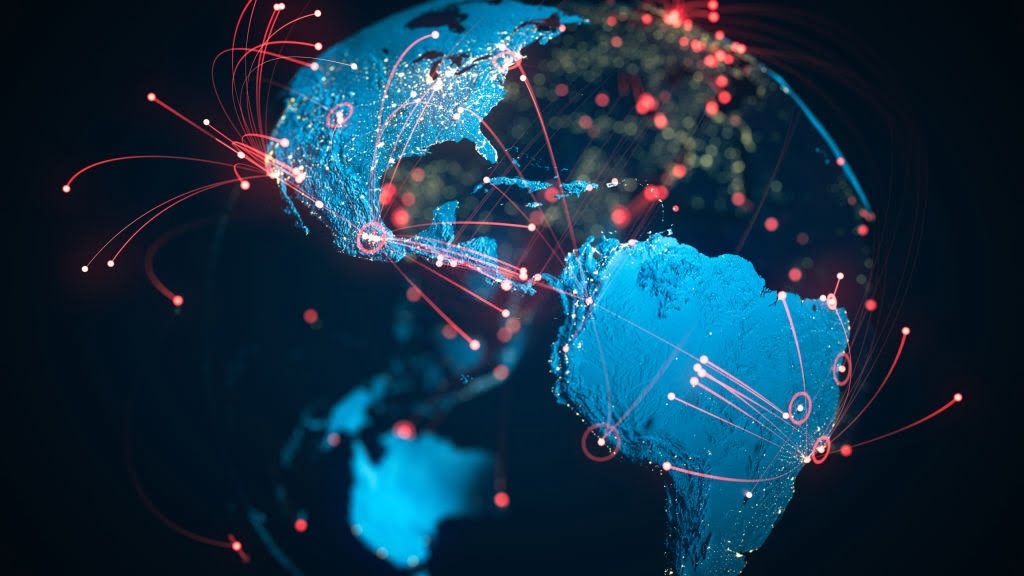The Role of Globalization

Globalization explains the cultural and economic changes that have occurred because of increased international trade and exchange in the late twentieth and early twenty first centuries. Although, prior to this era there was some international trade for example, “The Silk Trade” which began during the second century B.C.
Globalization has since been strengthened with the evolution of global economic organization, the metamorphosis of new technology, the mass movement of people, capital (money) and new infrastructure. With the expansion of globalization, international regulatory bodies have evolved such as World Trade Organization (WTO) which oversees the implementation, administration and operation of covered agreements and provides a forum for negotiations and for settling disputes (Sofree and Lucy Appenheirmer), financial organizations such as the International Monetary Fund (IMF) which provides financial support to its members. Other institutions were also birthed such as North American Free Trade Agreement (NAFTA).
Advocates for globalization have confidence that free trade can give rise to a more effective distribution of resources, reduces prices, and rise in employment for all countries involved. Critics on the other hand argued that free trade advocates an avenue where influential and powerful independent corporations can exploit workers and progressively build the politics of nation states.
Ultimately, the recent global recession, marked by financial crises in the United States, Europe, and China, shows us that all world economies are connected, for better or for worse. This essay seeks to highlight the pros and cons of globalization and explain some types of globalization.
Advantages of Globalization
According to supporters of globalization it will create an economic impact for countries involved. This means that a new market will evolve due to free trade for instance, Guyana where I am from is producing sugar, rice, and gold which is exported to Canada, the United States, Trinidad and Tobago among other countries as a result, it is able to gain access to higher quality, cheaper-priced goods such as petroleum, goods, and machinery which it imports.
In addition, jobs are created for citizens. In Guyana again, they recently found oil in the Essequibo region and Guyana’s Minister of Trade and Tourism is making bargaining negotiations with the United States to have as many jobs given to Guyanese people as possible. This should increase the spending power of the citizens, thus improving the standard of living of the people. Since Guyana produces gold its citizens already know how to do drilling, dredging, and diving which are skills needed for harnessing of oil but lack the heavier and modern tools that they hope the United States can provide. Ultimately, people of developing countries can obtain gainful employment opportunities through globalization, thus improving the quality of life for people.
Furthermore, with globalization there is an increase spread of communication and knowledge. When I was a kid growing up in Guyana, my uncle went to Iraq to study medicine and we would communicate with him only through letters which took weeks to go and return. Today communication is world wide and information is easily and instantly accessible around the world through the internet. Thanks to globalization! Globalization also allows inventions, medicine, and education to spread globally.
Disadvantages of globalization
On the flip side, critics argue that globalization has led to oppression, abuse, and misuse of labor. Workers are exploited in their own countries when powerful foreign companies set up sweatshop environment. According to Ross 1997, p.12 The General Account office (GAO) Nike has 38,000, employed in sweatshop working seventy-seven to eighty-four hours per week in Southeast Asia. Look at the clothes you have on your back right now if it says Gap, J.C. Penny, Nike or even if it’s a tee shirt with a school’s logo
I bet it was made in a sweatshop. Under these practices workers, work under inhumane conditions and extremely poor safety standards to produce cheap goods. For example, factory fires in 2012 killed 289 garment workers in Pakistan and 117 in Bangladesh as noted in an article titled “Fashion Free Trade”. Workers were trapped in buildings without emergency exits. This factory was producing clothing for American companies like Walmart, J.C. Penny, and Kohls.
Additionally, multinational corporations are accused of lack of concern for the environment, mismanagement of natural resources, and ecological damage. The increase in factories globally promotes greenhouse gases and increase fuel emission for transport of goods from one country to another daily. It is argued also that countries individual cultures are becoming watered down and suppressed by modernization.
Further, globalization is supposing be about free trade with no barriers. However, there are still several countries with many barriers. Guyana still has Value Added Tax of 16 percent and Europe has taxes on imports as much as 21.6 percent. In fact, one hundred sixty-one countries still have Value Added Taxes (VAT) on imports. The general complaint about globalization is that it has made the rich richer while making the poor poorer. It is great for investors but unsatisfactory for workers and the environment.
Types of Globalization
Economic Globalization. This is a global economic system that allows effortless movement of goods, production, capital, and resources among countries and nations to motivate and trigger financial growth.
Next is political globalization where varying governments around the world unite to achieve a common goal. For example, the World Trade organization (WHO) is a global international organization that deals with the rules for trade between countries. One hundred fifty-three are members of the (WHO).
Finally, the cultural globalization which is the circulation of ideas, attitudes, and values to other countries. The aim of this is to bring awareness and acceptance of different cultures around the world. For instance, learning English as a second language and the spread of brands (Nike), cuisines and customs across the globe.
Essentially, globalization is a very serious issue that affects every individual either directly or indirectly. I believe it should be critically analyzed and can be much more beneficial if its cultural, political, and economic goals are more for the people rather than for the investors.
References
Ross, Andrew. 1997. No Sweat: Fashion, Free Trade, and the Rights of Garment Workers. Verso
Sofree. 2020. What is Cultural Globalization? https://www.wisegeek.com/what-is-cultural-globalization.htm#
SchoolWorkHelper . Type of Globalization. https://schoolworkhelper.net/types-of-globalization/







I like this article on globalization. It is yet a complex issue. There is good and bad in it. We could add that people travel a lot because of it to do business around the world. Some pandemics are a result of globalization unfortunately.